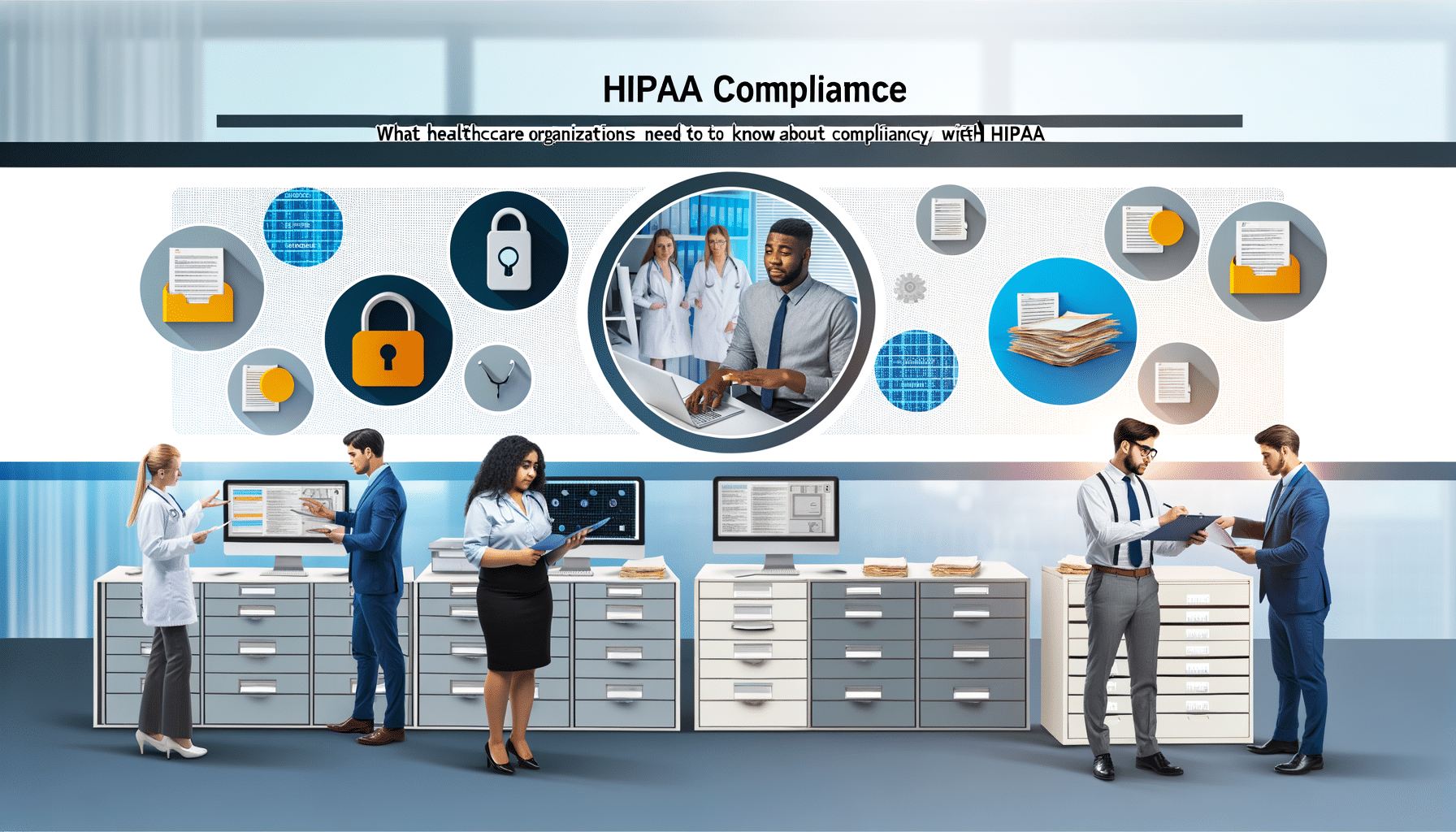- Compliance Essentials
- November 5, 2023
How to Audit Healthcare Records for Compliance and Accuracy

Enhancing Compliance and Accuracy in Healthcare Record Auditing
As someone passionate about the intersection of technology and compliance, I’ve observed firsthand how auditing healthcare records are an essential task for legal, finance, and compliance leaders in the healthcare field. The aim is not only to ensure compliance with industry standards like GDPR, HIPAA, and others but also to maintain data accuracy and integrity—a challenging but crucial endeavor in today’s fast-paced digital environment.
Auditing healthcare records might sound daunting, but with the right practices and technology integration, it can be efficiently managed. In this blog post, I’m excited to share the best practices for auditing healthcare records with an eye towards compliance and accuracy.
The Rising Necessity of Healthcare Record Audits
The healthcare industry is witnessing unprecedented changes with digitization at its core. This shift brings a higher risk of errors and non-compliance due to the sheer volumes of data handled daily. To avert potential breaches or penalties, regular healthcare record audits have become indispensable.
Auditing isn’t merely a formality; it’s a strategic activity that highlights inefficiencies and improves processes, ultimately safeguarding patient information and enhancing trust. Our goal should always be to make these audits as thorough as possible with minimal disruption.
Establishing a Robust Auditing Framework
Creating a structured auditing framework is the first step toward ensuring effective audits. A successful audit requires clear objectives, thorough planning, and the right metrics to measure success. Consider these fundamental elements:
– **Define Clear Objectives:** What are you looking to achieve with the audit? Is it to ensure compliance with regulations like HIPAA or to improve the accuracy of patient data? Clear objectives direct the audit process and help measure its success.
– **Develop an Audit Plan:** An audit plan serves as the backbone, providing a blueprint of the entire process. It should outline the scope, methodology, resources, and timeframe for every audit.
– **Involve Stakeholders:** Effective audits involve communication and collaboration among various departments within a healthcare organization. Engaging the right stakeholders ensures that all relevant data and processes are scrutinized.
Key Practices for Ensuring Compliance and Accuracy
Incorporating best practices into your auditing process can significantly bolster compliance and accuracy:
1. **Automate Where Possible:** Automation reduces human error and increases efficiency. Utilize AI-powered tools for automated data categorization and retrieval, such as those provided by RecordsKeeper.AI, to handle large volumes of data accurately.
2. **Regular Training and Updates:** Keep your team informed about the latest regulations and technologies. Regular training sessions ensure that everyone is on the same page and compliant with current standards.
3. **Conduct Frequent Internal Audits:** Regular internal audits help identify potential issues before a formal audit takes place. This proactive measure allows for corrective actions, reducing the risk of non-compliance.
4. **Ensure Data Integrity with Blockchain:** Blockchain provides a level of data integrity that traditional methods cannot. Blockchain’s immutable nature makes it an excellent tool for maintaining tamper-proof records.
5. **Implement Access Controls and Monitoring:** Ensure that only authorized personnel access sensitive data by utilizing secure data rooms with controlled access and real-time activity tracking.
Utilizing Technology for Efficient Auditing
Technology, especially advancements in AI and Blockchain, as featured in RecordsKeeper.AI, plays a pivotal role in modernizing audit processes. Implementing these tools can enhance the way records are managed and audited:
– **AI for Data Categorization:** Efficiently categorize and retrieve data using AI. This technology can significantly reduce the time needed for audits by automatically classifying records and flagging irregularities.
– **Blockchain for Immutable Records:** Leverage blockchain innovation for an added layer of security and transparency in record keeping, providing a tamper-proof audit trail.
– **Secure Data Management:** Use secure data rooms to maintain the confidentiality and security of healthcare records, utilizing advanced encryption and controlled access features.
Taking Action: The Way Forward
Effective healthcare record auditing is more than a regulatory requirement; it’s a safeguard against inconsistencies and potential breaches. By implementing the strategies mentioned above, incorporating technology like AI and Blockchain, and fostering a culture of compliance, organizations can manage their healthcare records with greater accuracy and security.
I invite professionals in compliance and record management positions to explore the advanced capabilities that RecordsKeeper.AI offers to streamline auditing procedures and enhance your record management experience.
For more insights and strategies on leveraging technology in compliance and record management, follow my journey with RecordsKeeper.AI. Together, we can ensure that healthcare records are managed efficiently and securely, allowing you to focus on what truly matters—providing exceptional patient care.
Toshendra Sharma is the visionary founder and CEO of RecordsKeeper.AI, spearheading the fusion of AI and blockchain to redefine enterprise record management. With a groundbreaking approach to solving complex business challenges, Toshendra combines deep expertise in blockchain and artificial intelligence with an acute understanding of enterprise compliance and security needs.
Related Posts

Automating Compliance Monitoring in Healthcare with AI
Learn how AI-driven tools simplify compliance monitoring in healthcare.
- December 4, 2023

HIPAA Compliance: What Healthcare Organizations Need to Know About Record-Keeping
Understand the essentials of HIPAA-compliant record-keeping.
- October 17, 2023
Archives
- December 2024
- November 2024
- October 2024
- September 2024
- August 2024
- July 2024
- June 2024
- May 2024
- April 2024
- March 2024
- February 2024
- January 2024
- December 2023
- November 2023
- October 2023
- September 2023
- August 2023
- July 2023
- June 2023
- May 2023
- April 2023
- March 2023
- February 2023
- January 2023
- December 2022
- November 2022
- October 2022
- September 2022
- March 2019
Want to get more content like this?
Signup to directly get this type of content to your inbox!!
Latest Post
Organizing External Auditor Access
- December 22, 2024
Document Control in Manufacturing Plants
- December 21, 2024
Handling Rush Financial Report Requests
- December 20, 2024
Managing Record Access After Staff Changes
- December 19, 2024





